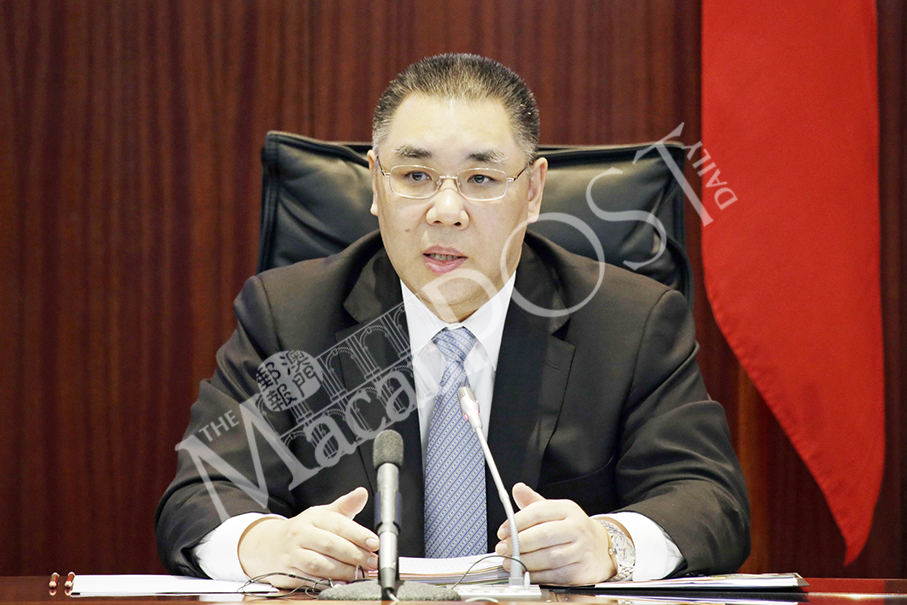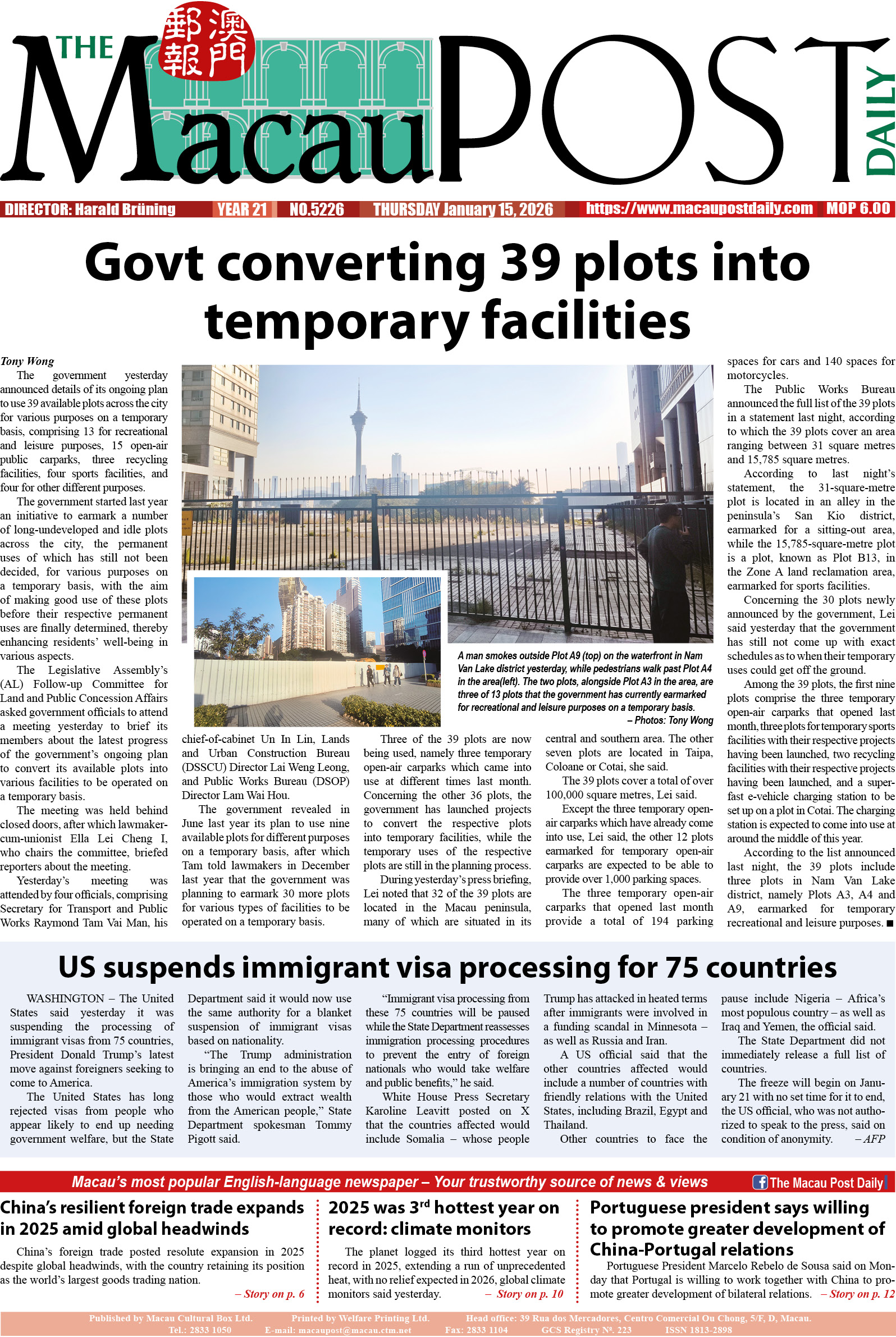The local government is proposing to ban the city’s gaming concession companies from listing on the stock exchange, lawmaker-cum-restaurateur Andrew Chan Chak Mo revealed yesterday.
Chan addressed a press briefing after yesterday’s closed-door meeting of the 2nd Standing Committee of the local legislature with Secretary for Economy and Finance Lei Wai Nong and other government officials in attendance. The meeting discussed the ongoing revision of the government-drafted amendment bill on reshaping the local gaming industry. Chan chairs the committee.
The latest version of the bill proposes that Macau’s gaming concession companies will not be allowed to be listed, while the previous version of the bill would have enabled them to be listed, provided that they got a green light from Macau’s chief executive.
Chan said that the ban, which the government presented to the committee yesterday, aimed to prevent Macau’s future gaming concessionaires from directly and indirectly selling their concessions.
Chan quoted the government officials as saying that, anyhow, none of the current gaming concession and sub-concession companies are listed and also should not be allowed to be listed in the future, adding that the government has not received any requests from Macau’s gaming concessionaires to be listed.
Chan noted that the ban would facilitate the government’s regulation of the gaming industry, adding that the ban was not in conflict with the current operation of the gaming concessionaires.
Moreover, under the latest version of the bill, Macau’s future gaming concessionaires are prohibited from direct personal ownership of shares in other gaming concessions, but will be allowed to indirectly own up to five percent, Chan said, adding that the “indirect ownership” might include holding funds of other gaming concessions.
Chan quoted the government officials as saying that this was to avoid manipulation or collusion in market competition by shareholders of rival gaming concession companies.
The bill has been amended repeatedly, and during the revision process the government eventually decided that the city’s so-called “satellite casinos” don’t need to be situated in real estate owned by the respective concessionaire. Initially, the government wanted to force third-party “satellite casinos” to be located on real estate owned by the respective gaming concession company. Consequently, the “satellite casinos” located on premises not owned by the respective concessionaire will be allowed to continue to operate, gaming industry sources have pointed out.
According to local media reports, the number of “satellite casinos” formally owned by gaming operators but actually run by third parties – junkets in particular – ranges between 18 and 22.
The latest revision of the bill proposes that if a satellite casino is closed during a transition period of three or four years, the respective premises would not have to be returned to the government, Chan said, adding that it could not, however, reopen for business.
Chan said he believed that this would be “a good change” enabling Macau’s junkets to continue to operate as long as they “do their own maths”.
The bill also proposes that once a gaming concession is revoked by the government, all the casinos of the respective concessionaire, together with its gaming tables, slot machines and other equipment, will revert to the government, Chan pointed out, adding that the reversion would be without any compensation, liability or encumbrance.
Chan said that the committee had had few comments during yesterday’s meeting on the latest amendments to the final text. Therefore, Chan said, it was expected that the committee would sign a final review report on the bill’s latest revision tomorrow, after which the bill will be sent to the legislature’s plenary session for its final debate and vote next week at the earliest.
The bill has been reviewed article-by-article by the standing committee headed by Chan for the past few months.
Chan said he expected the second and final reading of the bill to be completed in time for the expiry of the gaming concessions on June 26, so that the government’s gaming concession bidding process could start.
The government said earlier this year that all the current three gaming concessions and three sub-concessions will be extended until the end of the year.
The bill proposes that the government will grant up to six gaming concessions in the future. Sub-concessions will no longer be allowed, the government has said.
The current gaming sector comprises three concessions (SJM, Galaxy and Wynn) and three sub-concessions (Sands, Melco and MGM). The three concessionaires sold one sub-concession each.
A local lawyer told The Macau Post Daily last night that while none of Macau’s gaming concession or sub-concession companies is directly listed on the stock exchange in Hong Kong or elsewhere, all of them are listed indirectly through associate companies.
Lawmaker-cum-restaurateur Andrew Chan Chak Mo (right), who chairs the legislature’s 2nd Standing Committee, talks to reporters after yesterday’s 2nd Standing Committee’s closed-door meeting reviewing the ongoing revision of the government-drafted gaming bill, as the committee’s secretary, Lam Lon Wai, looks on. Photo: Ginnie Liang






